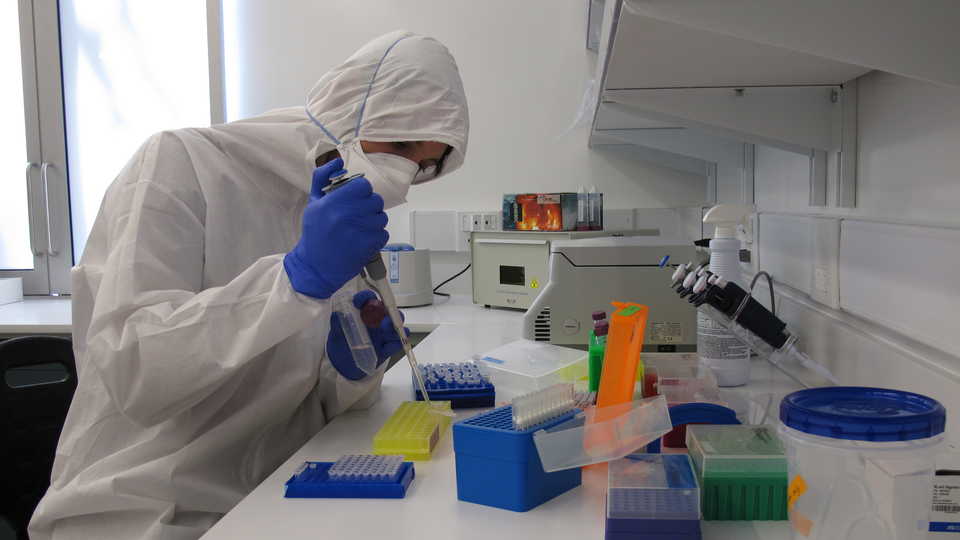IMLS Museum Genomics Workshop
March 12-14, 2020
California Academy of Sciences
San Francisco, CA
Cost: $175

**********UPDATE - March 3, 2020**********
Dear IMLS workshop participants,
Due to the ongoing spread of COVID-19 in Northern California and state of emergency announced in San Francisco that is likely to continue, we have made the difficult decision to postpone the IMLS workshop at the California Academy of Sciences until Autumn 2020, exact date TBD. Several of the speakers and participants are already under travel restriction, and given the small size of our workshop, it would be unfair to all participants if events could not proceed as planned.
If you have already paid the workshop registration fee, you will be refunded in full. We realize that many of you have already paid for flights and accommodation, and we sincerely apologize for any inconvenience caused. Many airlines are reducing or eliminating change or cancellation fees due to travel restrictions relating to COVID-19, and I am happy to help provide more information to airlines and hotels to help along processing refunds.
Again this is not a decision we made lightly, and we will keep you all informed of the rescheduled dates of the workshop. Please do not hesitate to contact us with any questions or concerns.
__________________________________________________________________________
This two-day workshop is designed to help natural history collections managers and curators understand how their collections can be used to conduct genomic research. Scientists at the forefront of cutting-edge genomics research will demonstrate the challenges and opportunities that both ancient and modern curated specimens present for gaining genetic knowledge across taxa. There will also be opportunities for discussion among curators to determine best practices for use of your collections in genetic projects.
Free admission to the California Academy of Sciences and the NightLife event on Thursday, March 12, are included. Workshop activities will begin on Friday, March 13, at 9 am. A reception and dinner will be provided on Friday evening, followed by a keynote presentation by genomicist Dr. Ed Green: "A career in genomics: From Neanderthals to the Chameleon Killer."
Scroll down to view schedule, travel and lodging information, and event organizers and supporters.
Workshop schedule
Thursday, March 12
Arrive anytime on Thursday, March 12; tickets to the museum and NightLife event (6–10 pm; 21+) are included in your registration. These are optional; main workshop activities will begin Friday.
Friday, March 13
Morning session:
- 9 am: Overview and welcome
- 9:30 am: Introduction and history of ancient DNA (Beth Shapiro, UCSC)
- 10:10 am: DNA extraction techniques (Athena Lam, CAS)
- 10:30 am: Break
- 11 am: Lab demonstration: DNA extraction while avoiding contamination (TBD)
- 12:30 pm: Lunch
Early afternoon session: Museum genomics across taxa:
- 2 pm: Inhibition, contamination, and decay: Why ancient DNA is terrible (and why it doesn’t matter) (Josh Knapp, UCSC)
- 2:15 pm: Case study: Genomics of ancient mammals (Alisa Vershinina, UCSC)
- 2:30 pm: Case study: Genomics in herbaria (Rachel Meyer, UCSC)
- 2:45 pm: Case study: Genomics of curated birds (Jack Dumbacher, CAS)
- 3 pm: Case study: Genomics in insect collections (Kim Ballare, UCSC)
- 3:15 pm: Q&A panel with last five speakers
- 3:45 pm: Break
Late-afternoon session: Museum-specific challenges:
- 4:15 pm: Methods of sample preservation and how they impact DNA decay (Alison Gould, CAS)
- 4:35 pm: How many samples is enough? How much sample is enough? (Grant Zazula, YDTC; Ross MacPhee, AMNH)
- 4:55 pm: What makes a ”good” ancient DNA lab? (Katie Moon, UCSC)
- 5:15 pm: Panel with last three speakers
- 6 pm: Ancient lab tour
- 7 pm: Workshop dinner
Plenary talk: "A Career in Genomics: From Neandertals to the Chameleon Killer" (Ed Green, UCSC)
Saturday, March 14
Morning session: Evaluating study designs for destructive sampling requests:
- 9:30 am: Study designs for population genetics, genomics, and metagenomics (Beth Shapiro, UCSC)
- 9:50 am: All about the metadata: Chronology, taxonomy, and morphology (Grant Zazula, YDTC)
- 10:10 am: What can other molecules tell you? From isotopes to proteins (Matthew Collins, NHMD)
- 10:30 am: Should we charge for sampling requests? (Brian Simison, CAS)
- 10:45 am: Break
- 11:15 am: Should there be an industry standard for evaluating sampling requests? (Ross MacPhee, AMNH and/or Jack Dumbacher, Moe Flannery CAS)
- 11:30 am: Panel (McPhee, Dumbacher, Flannery)
- 12:30 pm: Lunch, Academy Café
Afternoon session: Discussing an industry standard for specimen requests:
- 2:30 pm: Breakout session, small group discussions: What would an industry standard look like?
- 4 pm: Group presentations and reports
- 4:30 pm: Discussion panel: Zazula, MacPhee, group leaders: Proposal for moving forward
- 5:30 pm: End
- 6 pm: Optional group dinner
Please note: The current schedule is confirmed but is subject to minor changes.
Travel and lodging
All workshop activities will take place at the California Academy of Sciences' Board Room and research laboratory facilities.
Getting here:
The California Academy of Sciences is located in San Francisco's Golden Gate Park at 55 Music Concourse Drive. Nearby airports are San Francisco International (SFO) or Oakland International (OAK).
Taxis to central San Francisco from SFO run around $85-100.
Staying here:
There are many options for hotel accommodations in San Francisco. Two hotels that we recommend that are near the Academy are Stanyan Park Hotel and Hotel Kabuki.
Airbnb also lists many options for staying near the Academy. We recommend you book early as places tend to fill up fast!
View our Getting Here page for detailed directions, public transit, and parking info.
Workshop organizers
- Beth Shapiro, University of California Santa Cruz, Paleogenomics Lab
- Brian Simison, California Academy of Sciences, Center for Comparative Genomics
- Kim Ballare, University of California Santa Cruz, Paleogenomics Lab
We are grateful to the following organizations for their support:
- Institute of Museum and Library Services
- California Academy of Sciences
- University of California Santa Cruz
- The Society for the Preservation of Natural History Collections